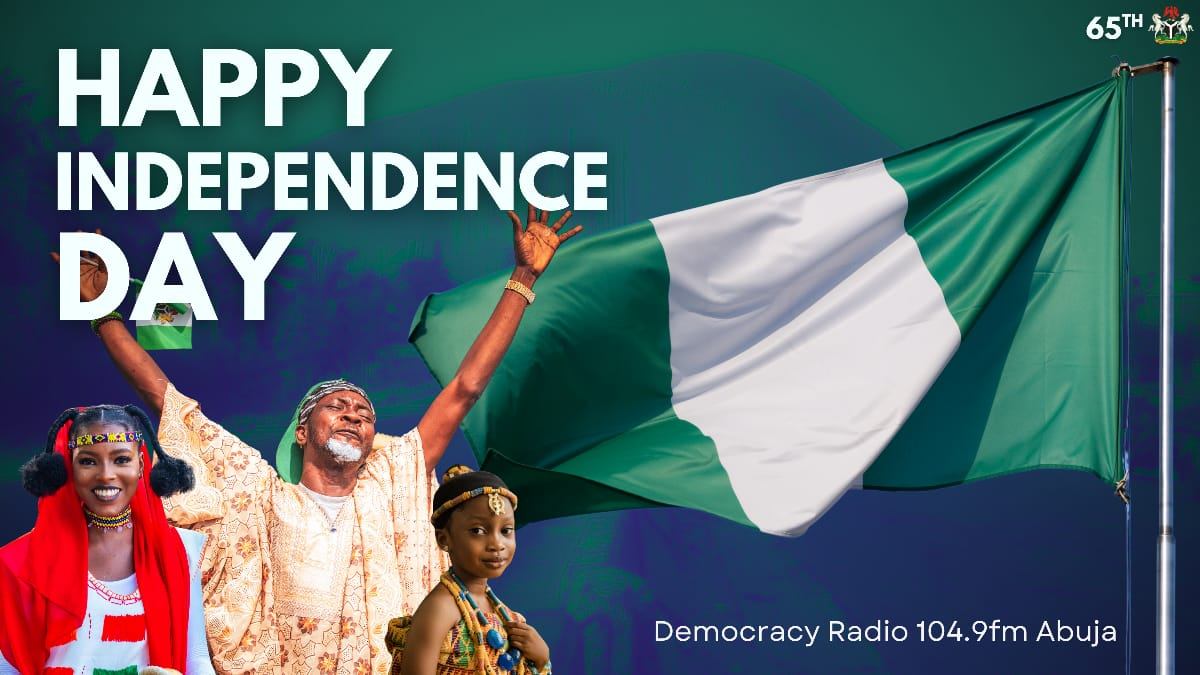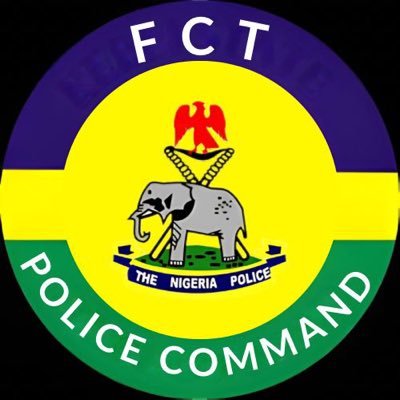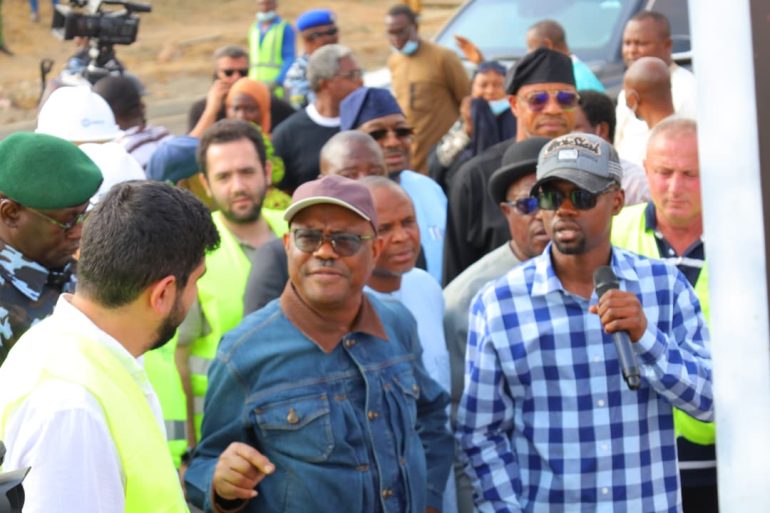Listeners:
Top listeners:
-
play_arrow
104.9FM Best rock music demo
-
play_arrow
Demo Radio Nr.1 For New Music And All The Hits!
-
play_arrow
Demo Radio Techno Top Music Radio
-
 play_arrow
play_arrow
Police Commissioner Launches Weapon and Riot Control Training for FCT Officers Democracy Radio
Nigeria at 65: Progress Hinges on Economic Vision, Citizen Participation – Leaders

By Sulaiman Gobir
As Nigeria marks 65 years of independence, leaders and experts have stressed that the country’s freedom will only translate into real progress if urgent issues of governance, economic planning, and citizen participation are addressed.
Former Speaker of the Abia State House of Assembly and current member of the FCT Civil Service Commission, Martin Azubuike, said independence gave Nigeria sovereignty, but the real test lies in how its systems are managed.
“Independence gives us the leverage to take our destiny in our own hands within the ambit of the law. We must superintend over our resources and institutions responsibly,” Azubuike noted.
Economic and governance expert, Dr. Hassan Sadiq, warned that despite the symbolic value of independence, Nigeria has struggled to sustain the economic vision of its founding leaders.
“The first generation of leaders built agriculture, refineries, and textile industries to secure economic stability. Successive governments abandoned that path, leaving us with inadequate infrastructure and declining industries,” he said. “It’s like a prince in a palace who never knew he was a prince and became a laborer in a nearby village.”
For AbdulMumini Abiola, son of the late Chief M.K.O. Abiola, the bigger challenge lies in citizen apathy toward democracy. He argued that independence and democracy mean little without active participation.
“We’ve had 30 years of uninterrupted democracy, but leaders alone cannot transform Nigeria. In 2023, 93 million Nigerians had voter cards, yet only 23 million voted. Democracy is about inclusion and collective responsibility,” Abiola said.
- As Nigeria reflects on six decades of self-rule, analysts insist that its independence will only fulfill its true promise when leaders embrace visionary planning and when citizens take ownership of governance through active participation.
Written by: Julian Osamoto
#DemocracyRadio AbdulMumini Abiola Dr. Hassan Sadiq Martin Azubuike
Similar posts
Copyright Democracy Radio -2024


